Storage Matters: Why Xbox and Playstation SSDs Usher In A New Era of Gaming
by Billy Tallis on June 12, 2020 9:30 AM EST- Posted in
- SSDs
- Storage
- Microsoft
- Sony
- Consoles
- NVMe
- Xbox Series X
- PlayStation 5
What To Expect From Next-gen Games
NVMe SSDs can easily be 50 times faster than hard drives for sequential reads and thousands of times faster for random reads. It stands to reason that game developers should be able to do things differently when they no longer need to target slow hard drives and can rely on fast storage. Workarounds for slow hard drive performance can be discarded, and new ideas and features that would never work on hard drives can be tried out. Microsoft and Sony are in pretty close agreement about what this will mean for the upcoming console generation, and they've touted most of the same benefits for end users.
Most of the game design changes enabled by abandoning hard drives will have little impact on the gaming experience from one second to the next; removing workarounds for slow storage won't do much to help frames per second, but it will remove some other pain points in the overall console experience. For starters, solid state drives can tolerate a high degree of fragmentation with no noticeable performance impact, so game files don't need to be defragmented after updates. Defragmentation is something most PC users no longer need to give even a passing thought, but it's still an occasionally necessary (albeit automatic) maintenance process on current consoles.
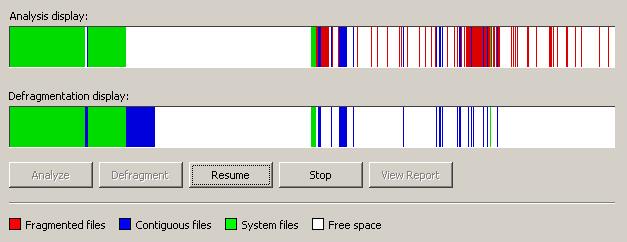
Not as obsolete as you might have thought. But soon.
Since game developers no longer need to care so much about maintaining spatial locality of data on disk, it will also no longer be necessary for data that's reused in several parts of a game to be duplicated on several parts of the disk. Commonly re-used sounds, textures and models will only need to be included once in a game's files. This will have at least a tiny effect on slowing the growth of game install sizes, but it probably won't actually reverse that trend except where a studio has been greatly abusing the copy and paste features in their level editors.
Warnings to not turn off the console while a game is saving first showed up when consoles moved away from cartridges with built-in solid state storage, and those warnings continue to be a hallmark of many console games and half-assed PC ports. The write speeds of SSDs are fast enough that saving a game takes much less time than reaching for a power switch, so ideally those warnings should be reduced, if not gone for good.
But NVMe SSDs have write speeds that go far beyond even that requirement, and that allows changes in how games are saved. Instead of summarizing the player's progress in a file that is mere megabytes, new consoles will have the freedom to dump gigabytes of data to disk. All of the RAM used by a game can be saved to a NVMe SSD in a matter of seconds, like the save state features common to console emulators. If the static assets (textures, sounds, etc.) that are unmodified are excluded from the save file, we're back down to near instant save operations. But now the save file and in-use game assets can be simply read back into RAM to resume the whole game state in no more than a second or two, bypassing all the usual start-up and load work done by games.
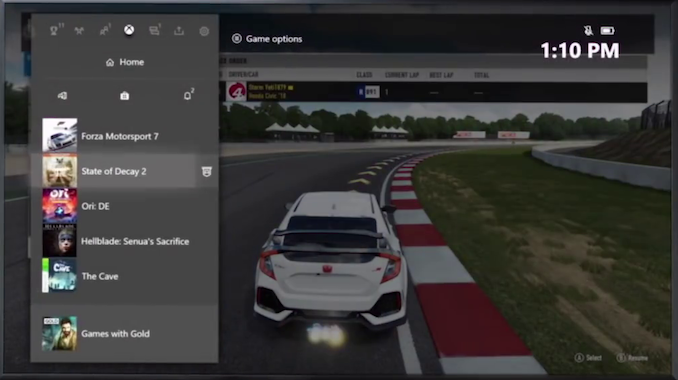
Xbox Series X Quick Resume menu
The deduplication of game assets is a benefit that will trivially carry over to PC ports, and the lack of defragmentation is something PC gamers with SSDs have already been enjoying for years—and neither of those changes requires a cutting edge SSD. The instant save and resume capabilities can work just fine (albeit not quite so "instant") on even a SATA SSD, but implementing this well requires a bit of help from the operating system, so it may be a while before this feature becomes commonplace on PC games. (Desktop operating systems have long supported hibernate and restore of the entire OS image, but doing it per-application is unusual.)
But those are all pretty much convenience features that do not make the core game experience itself any richer. The reduction or elimination of loading screens be a welcome improvement for many games—but many more games have already gone to great lengths to eliminate loading screens as much as possible. This most often takes the form of level design that obscures what would have been a loading screen. The player's movement and field of view are temporarily constrained, drastically reducing the assets that need to stay in RAM and allowing everything else to be swapped out, while retaining some illusion of player freedom. Narrow hallways and canyons, elevator and train rides, and airlocks—frequently one-way trips—are all standard game design elements to make it less obvious where a game world is divided.
Open-world games get by with fewer such design elements by making the world less detailed and restricting player movement speed so that no matter where the player chooses to move, the necessary assets can be streamed into RAM on the fly. With a fast SSD, game designers and players will both have more freedom. But some transition sequences will still be required for major scene changes. The consoles cannot reload the entire contents of RAM from one frame to the next; that will still take several seconds.
SSD As RAM?
Finally, we come to what may be the most significant consequence of making SSDs standard and required for games, but is also the most overstated benefit: Both Microsoft and Sony have made statements along the lines of saying that the SSD can be used almost like RAM. Whatever qualifiers and caveats those statement came with quickly get dropped by fans and even some press. So let's be clear here: the console SSDs are no substitute for RAM. The PS5's SSD can supply data at 5.5 GB/s. The RAM runs at 448 GB/s, *81 times faster*. The consoles have 16 GB of GDDR6 memory. If a game needs to use more than 16 GB to render a scene, framerates will drop down to Myst levels because the SSD is not fast enough. The SSDs are inadequate in both throughput and latency.
It's certainly possible for a level to use more than 16GB of assets, but not all on screen at once. The technical term here is working set: how much memory is really being actively used at once. What the SSD changes somewhat is the threshold for what can be considered active. With a fast SSD, the assets that need to be kept in DRAM aren't much more than what's currently on screen, and the game doesn't need to prefetch very far ahead. Textures for an object in the same room but currently off-screen may be safe to leave on disk until the camera starts moving in that direction, whereas a hard drive based system will probably need to keep assets for the entire room and adjacent rooms in RAM to avoid stuttering. This difference means an SSD-based console (especially with NVMe performance) can free up some VRAM and allow for some higher-resolution assets. It's not a huge change; it's not like the SSD increases effective VRAM size by tens of GBs, but it is very plausible that it allows games to use an extra few GB of RAM for on-screen content rather than prefetching off-screen assets. Mark Cerny has approximated it as saying the game now only needs to pre-fetch about a second ahead, rather than about 30 seconds ahead.
There's another layer to this benefit: partially resident textures has been possible on other platforms, but becomes more powerful now. What was originally developed for multi-acre ground textures can now be effectively used on much smaller objects. Sampler feedback allows the GPU to provide the application with more detailed and accurate information about which portions of a texture are actually being displayed. The game can use that information to only issue SSD read requests for those portions of the file. This can be done with a granularity of 128kB blocks of the (uncompressed) texture, which is small enough to allow for meaningful RAM savings by not loading texels that won't be used, while at the same time still issuing SSD reads that are large enough to be a good fit for SSD performance characteristics.
Microsoft has stated that these capabilities add up to the effect of a 2x or 3x multiplier of RAM capacity and SSD bandwidth. I'm not convinced. Sure, a lot of SSD bandwidth can be saved over short timescales by incrementally loading a scene. But I doubt these features will allow the Series X with its ~10GB of VRAM to handle the kind of detailed scenery you could draw on a PC GPU with 24GB of VRAM. They're welcome to prove me wrong, though.


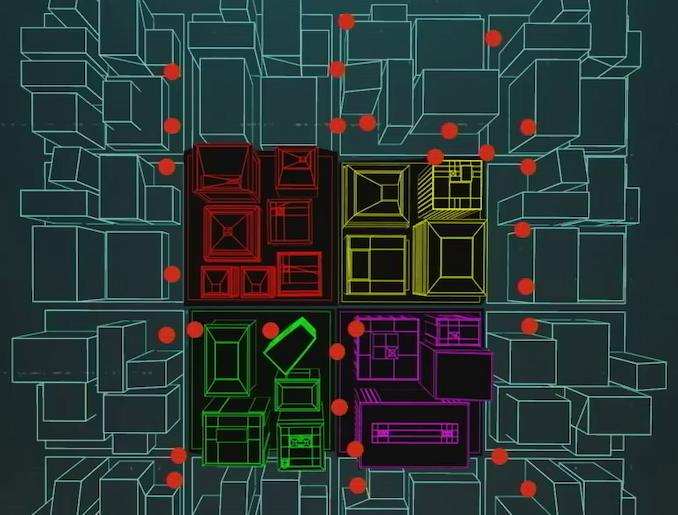
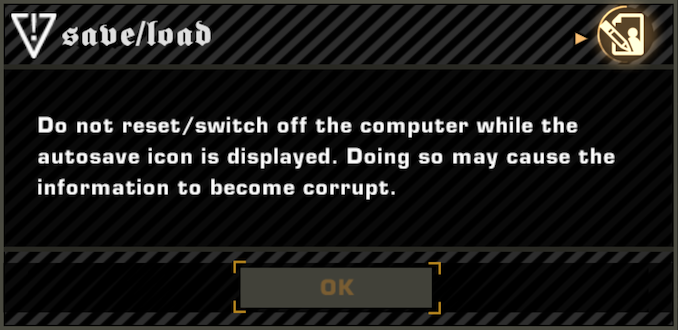
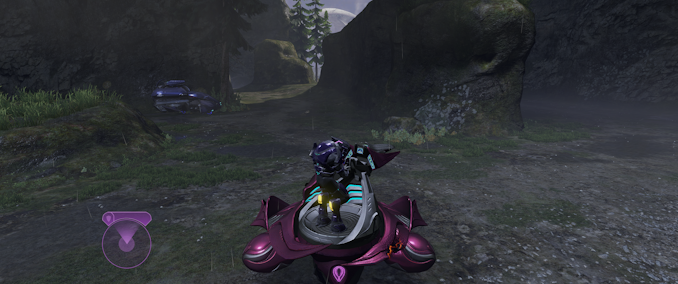










200 Comments
View All Comments
Oxford Guy - Monday, June 15, 2020 - link
"The other point is that PCs, while more complicated"False.
"Consoles" of today, except for the Switch, ARE PCs.
They are merely PCs with different walled gardens and, unlike the "PC" platform, they can't be used outside of those walled gardens. On the "PC", though, there is Linux, which offers freedom from the Microsoft and Sony taxes.
close - Tuesday, June 16, 2020 - link
@hecksagon, this "oh it's just 30FPS" routine is pretty old. Whatever you think is a good resolution and framerate, someone thinks it should be higher. Current gen consoles play run games 4K@30-60FPS. *I* personally find that more than decent and certainly better than the hassle of PC gaming. And I say this as someone who plays on the console just slightly more than on the PC. Graphics are the bonus in a game, I still enjoy an "8 bit" game even without the Ks and the FPSs, I still play oldies.So if you say rock solid 60FPS is good, someone can just reply "144FPS or bust, anything else is for micropeenuses" (got you there ;)). 4K is good? You need at least 4 x 5K monitors, anything else..." well you get the point. Maybe.
It's nice that you went on to list all the (dis)advantages that were already discussed previously by myself and others just before reaching the conclusion that for myself and many, many others the tradeoffs are worth it. But leave it to a 16 year old to think there's only room in this world for what they like "na-d'uh". You'd like to think that you're some sort of genius surrounded by millions of idiots who for some reason impossible to understand chose differently. Some day you might still want to play games but not feel like wasting your free time tinkering away.
So in conclusion yes, no matter how you measure it, mine is bigger ;).
FreckledTrout - Saturday, June 13, 2020 - link
While I am a PC gamer I do get the appeal of "it just works". I buy iPhone's because I don't want to deal with tweaking tons of with settings and iPhone's are fairly well configured right out of the box.Oxford Guy - Monday, June 15, 2020 - link
"While I am a PC gamer I do get the appeal of 'it just works'."Marketing magic. In reality, there is nothing a "console" walled garden offers for consumers in added value. It's all smoke and mirrors.
Every feature can be done with Linux + Vulkan + OpenGL and done better (lower cost, less inefficiency of having THREE walled gardens).
close - Tuesday, June 16, 2020 - link
@Oxford Guy "Every feature can be done with Linux + Vulkan + OpenGL"Ah... all of the things nobody ever wanted to deal with when playing games. In reality you can't buy a console equivalent new PC for less money (plenty of people|bloggers tried and ended up comparing new consoles with second hand PC to even get close).
Yes, doing it yourself is many times cheaper, including (especially?) that thing that you mostly do by yourself. But people also want convenience. Which is why the lowly console still sells tens of millions of units every year. People even play on phones. And just as a hint that people don't care that much for your opinion... look around ;).
close - Saturday, June 13, 2020 - link
@Retycint, nothing strange. Indeed, a game that is optimized by design to run as well as it can on the given hardware with no tinkering involved is for me far preferable than having to waste an afternoon for every game and maybe get the desired result. And just because you have dozens of settings and powerful hardware it doesn't change the fact that the performance will vary with every driver version. I've had a far more inconsistent gaming experience on my PC than on the console and again, I have a much faster PC than console.Yes, there is the risk of a developer getting a game's performance to dip here and there. But then when this happens they usually fix it or the game stays on the shelves. I gave you a concrete example. For me and many others the tradeoff is worth it.
whatthe123 - Saturday, June 13, 2020 - link
except you gave a horrible example. Assassins Creed Odyssey dips in framerate on every platform, especially consoles, where neither the ps4 pro nor the xbox one x can maintain even 30fps as shown by digital foundry. Neither can maintain 4K either and instead use dynamic resolution, which is also available on PC. Basically your example of "it just works" is a game that constantly stutters from frame dips and can't maintain its output resolution. Not entirely sure how that's different from running a PC with random settings and just ignoring frame dips.close - Sunday, June 14, 2020 - link
Except my example wasn't "dips framerate", it was "freezes". I guess you can call it "dipping framerate all the way down to 0fps for at least 1s". And I guess you could argue that something is wrong on my PC, probably the AV doing something weird, when I installed the latest GPU drivers I didn't properly clean up the old ones, I didn't "defragment" the SSD, etc. But that would just reinforce my point.I can give you dozens of examples but I'm sure you'll just find weird ways to "prove" that they are all exceptions that don't count somehow, "everyone knows that" . My GPU alone cost more than any latest gen console at launch, the rest of it is leaps ahead also, and yet the experience on PC was always more inconsistent and full of hassle.
And if you want to "play that game", every gamer worth their salt agrees that a playable experience starts at 144FPS but should really go higher. Which means your PC also spends 100% of its time in a "framerate dip". So if I'm going to stare at an "eyesore" I'd rather do it with a $400 box that mostly does 4K at 30-60FPS than a $2000 one where there's always a tweak to be done to get it right. I just don't have the time or the patience for that kind of crap. If the game review says "adequate performance" on the console, I know I'll get adequate performance. On the PC it's never that simple.
You clearly have no consistent first hand experience using both, so that kind of shoots your opinion in both feet and once between the eyes for good measure.
Zagor Te Nay - Sunday, June 14, 2020 - link
I'm with you.Also PC and PS4 gamer. Not all games work perfectly on consoles, but if you do some research before you buy console game - wait for reliable review or two, for example - if conclusion is that game works fine on any give console, you know exactly what performance you will get out of it on your console. With PC, even with minimum/recommended specs, one never knows if game will behave exactly the same. There might be some legacy hardware, older drivers...
Back in the days - I think it was AMD64 days - I have built new rig with GeForce 7850 GPU etc. My PC was crashing in 2 out of 3 games. Game would freeze and audio would lock in a loop... hard reset was the only way out. Luckily I was working for IT company so I had access to spare parts I could borrow to troubleshoot.
After replacing everything meaningful, reinstalling OS and drivers a few times... and starting to get a bit desperate, I have replaced everything that I haven't tried before, just because. Solution to my problem turned out to be replacing Microsoft Internet Explorer keyboard. Keyboard was working perfectly in Windows, and computer never froze on desktop, so I never suspected keyboard. It probably wasn't even faulty - I brought it to office and it worked perfectly fine for years on my work PC, until I decided I don't want beige keyboard any more.
I know it is extreme one off, but I did have other share of smaller compatibility issues, since I started gaming on PC in early '90. Consoles are more straight forward.
SirPerro - Sunday, June 14, 2020 - link
Well but that's exactly it. "It just works" means that. That's what Apple users expect from their computer or phone. And you may not prefer consoles, but "They just work".I also like PC gaming, but I'm aware there's A LOT of knowledge involved which is not necessary with consoles.
We are a small minority of people who understand really technical concepts. Power users if you want. But people out there don't know what frame rate is. They don't have a choice because it's overwhelming for them. That's EXACTLY what consoles do best. They create a layer of abstraction that works for too many people.